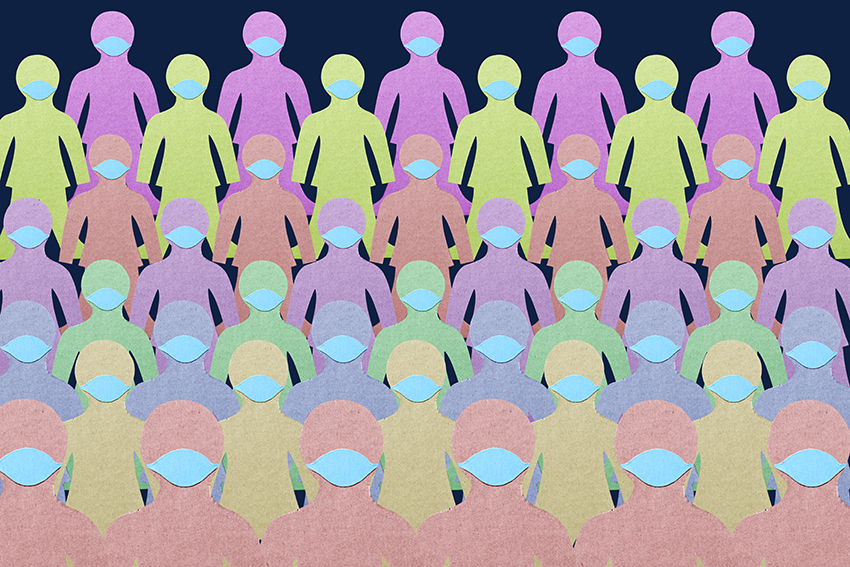
Photo Credit: Francesco Carta fotografo/Getty Images
Although we cannot truly compare COVID-19 with HIV, there are similarities worth exploring. As the COVID-19 epidemiological data pours in, we have learned that communities of color are at heightened risk for hospitalization and death. With the reality that the economic fallout affects minority communities more than anyone else, it is clear the odds are against us yet again. We have seen this story play out throughout the course of the HIV epidemic, with LGBTQ, black and Latinx communities enduring the brunt of the disease’s burden. These health disparities are the result of structural inequities that our nation has not yet found the resolve to address. So, just as we did in the early days of HIV, we must arm ourselves with knowledge and a community-driven purpose to protect ourselves and those around us from COVID-19.
The HIV epidemic has taught us that, as much our communities are susceptible to disease, we are also resilient. We have learned to adapt to new realities that are not favorable to us and to understand that it is our job to be resourceful. This is essential given that, in addition to well-documented structural barriers, our communities have been bombarded with negative messages that perpetuate the narrative of victimhood instead of what makes us strong and resilient.
We have seen the signs at the rallies: “Sacrifice the weak.” What is unfolding is a stigma-fueled narrative surrounding COVID-19: that the disease only affects certain people, and that those people are “the weak” or minorities. As we learn how to navigate the new normal, communities of color must tap into what makes us stronger, particularly in the absence of a vaccine and effective treatment. We must resist letting stigma sneak into the COVID-19 conversation, as it did with HIV.
In the ’80s and early ’90s, gay men were basically on their own, waiting for the time to be told, “You are going to die of AIDS.” The narrative of HIV’s early days set the stage for years of stigma against certain communities. Gay men were “those people.” More recently, the narrative expanded to include the black, Latinx and transgender communities. HIV robbed us of our freedom, our peace of mind, our health, our day-to-day existence — just as COVID-19 is doing now. We lost bright, smart, kind people to AIDS. We mourned an entire generation of gay men. Those losses will always be with us. But, HIV also united and mobilized an entire community in the absence of an early, collective and coordinated response. Sound familiar?
Facing an undue disease burden is not new to minority communities. We are more at risk for COVID-19 and HIV, but we can beat both. We are people of color and we know it can be done. Share on XWe manage FHI 360’s contract with the U.S. Centers for Disease Control and Prevention to design and implement the Let’s Stop HIV Together media campaign promoting HIV prevention and treatment. This work involves building messaging to tap into community resilience to combat HIV stigma. We know that coming from a place of strength rather than fear resonates better with audiences and is more likely to inspire action. As health communicators, we know we must acknowledge where we are in this moment and how hard COVID-19 has been for all of us. But, we also must show where we can be, so our communities feel compelled and supported to act. We can start by focusing on our communities’ resourcefulness, our inherent right to be healthy, our values, our history and our acts of kindness and solidarity as we face COVID-19.
Although the fight against COVID-19 is just beginning, we can draw from the evolution of the HIV epidemic in the United States. It is important to shine a light on the injustice and well-documented systematic societal actions — or inactions — that have helped create an environment where optimal health is hard to achieve within ethnic and sexual minorities. Let’s help end the cycle of blame, disadvantage and stigma by flipping the narrative to one that is empowering and supportive. It may sound Herculean — but not to us black, Latinx and gay people. We have done it in the past and we must do it again now.
